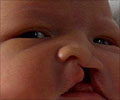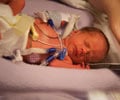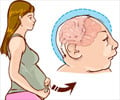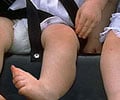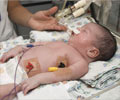Women who took pregabalin during the first trimester of pregnancy were three times more likely to result in major birth defects

‘Heart defects and structural problems with the central nervous system occur when pregnant women use the pain-killer drug, pregabalin.’





For the study, information was collected in seven countries from 164 women who took pregabalin during a pregnancy and 656 pregnant women who were not taking any anti-seizure drugs. The women or their practitioners were then contacted again after their expected date of delivery. Pregnancies of the women who took pregabalin during the first trimester of pregnancy were three times more likely to result in major birth defects than those of the women who did not take anti-seizure drugs. Seven of the 116 pregnancies in women taking anti-seizure drugs, or 6 percent, had major birth defects, compared to 12 of 580 pregnancies, or 2 percent, in women who did not take the drug. Birth defects due to chromosomal abnormalities were not included in these results.
The major birth defects included heart defects and structural problems with the central nervous system (CNS) or other organs. The women taking pregabalin were six times more likely to have a pregnancy with a major defect in the central nervous system than women who were not taking the drug, with four CNS defects out of 125 pregnancies, or 3.2 percent, compared to three CNS defects out of 570 pregnancies, or 0.5 percent.
Of the women taking pregabalin, 115 were taking it to treat neuropathic pain, 39 were taking it for psychiatric disorders, including depression, anxiety, bipolar disorder and psychosis, five were taking it for epilepsy and one was taking it for restless leg syndrome.
A total of 77 percent of the women started taking pregabalin before they became pregnant. The women in the study stopped taking the drug at an average of six weeks into their pregnancies. Of the women taking pregabalin, 22, or 13 percent, were also taking another anti-seizure drug.
Advertisement
Winterfeld said, "Pregabalin should be prescribed for women of child-bearing age only after making sure that the benefits of the drug outweigh the risks and after counseling them about using effective birth control. In cases where women have taken pregabalin during pregnancy, extra fetal monitoring may be warranted."
Advertisement
Source-Newswise

